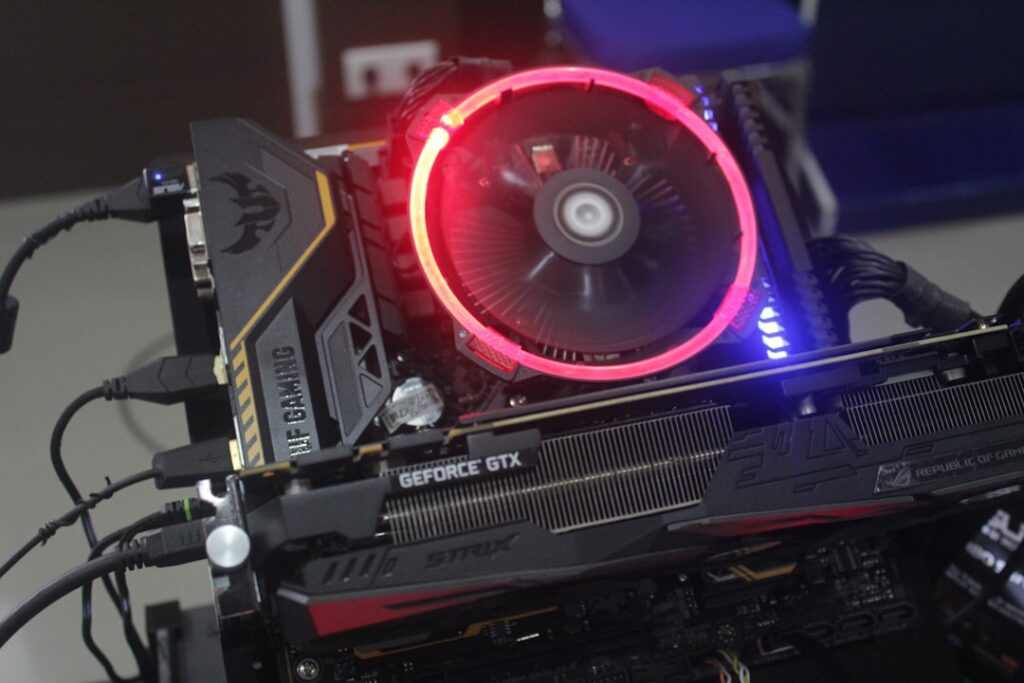{ “title”: “Mastering AI Programming: A Comprehensive Tutorial for Beginners and Experts”, “meta_description”: “Discover the power of AI programming with this in-depth tutorial. Learn the fundamentals, explore the latest trends, and unlock the potential of artificial intelligence.”, “content”: “
Mastering AI Programming: A Comprehensive Tutorial for Beginners and Experts
In the rapidly evolving world of technology, artificial intelligence (AI) has emerged as a game-changer, transforming industries and shaping the future. As AI continues to permeate various aspects of our lives, the demand for skilled AI programmers has skyrocketed. Whether you’re a beginner looking to dive into the world of AI or an experienced developer seeking to expand your expertise, this comprehensive tutorial will guide you through the essential concepts and practical applications of AI programming.
Understanding the Fundamentals of AI Programming
At the core of AI programming lies the ability to create intelligent systems that can perceive, learn, and make decisions. This involves a deep understanding of machine learning algorithms, neural networks, and natural language processing. In this section, we’ll explore the foundational principles of AI programming, including:
- The history and evolution of AI
- The key components of an AI system
- The role of data in AI programming
- Popular AI programming languages and frameworks
- The importance of ethical considerations in AI development
Exploring the Latest Trends in AI Programming
The field of AI programming is constantly evolving, with new technologies, techniques, and applications emerging at a rapid pace. In this section, we’ll dive into the latest trends and innovations shaping the future of AI programming, including:
- Advancements in deep learning and neural networks
- The rise of reinforcement learning and its applications
- The integration of AI with other emerging technologies (e.g., IoT, blockchain, cloud computing)
- The growing importance of explainable AI and responsible AI development
- The impact of AI on various industries (e.g., healthcare, finance, transportation)
Building Your AI Programming Skills
Becoming a proficient AI programmer requires a combination of theoretical knowledge and practical experience. In this section, we’ll provide a step-by-step guide to help you develop your AI programming skills, including:
- Mastering the fundamentals of programming and data structures
- Familiarizing yourself with popular AI programming languages (e.g., Python, TensorFlow, PyTorch)
- Exploring machine learning algorithms and their practical applications
- Developing expertise in areas such as natural language processing, computer vision, and robotics
- Building and deploying AI-powered applications and models
- Staying up-to-date with the latest trends and best practices in AI programming
Real-World Applications of AI Programming
AI programming has a wide range of applications across various industries, transforming the way we live and work. In this section, we’ll explore some of the real-world use cases of AI programming, including:
- Predictive analytics and decision-making in finance and healthcare
- Personalized recommendations and customer experience in e-commerce
- Autonomous vehicles and intelligent transportation systems
- Automated language translation and natural language processing
- Computer vision and image recognition for security and surveillance
- Robotic process automation and intelligent process optimization
By understanding the practical applications of AI programming, you’ll gain a deeper appreciation for the transformative power of this technology and how it can be leveraged to solve complex problems and drive innovation.
Conclusion: The Future of AI Programming
As we look to the future, the potential of AI programming is limitless. With continued advancements in hardware, software, and algorithms, the capabilities of AI systems will only continue to grow, opening up new possibilities and transforming industries. By mastering the art of AI programming, you’ll be well-positioned to contribute to this exciting and rapidly evolving field, shaping the future of technology and driving positive change.
FAQ
What is the difference between AI programming and traditional programming?
The key difference between AI programming and traditional programming lies in the approach to problem-solving. Traditional programming involves writing explicit instructions for a computer to follow, while AI programming focuses on creating systems that can learn and adapt to solve problems on their own, often using techniques like machine learning and neural networks.
How can I get started with AI programming?
To get started with AI programming, we recommend the following steps:
- Develop a strong foundation in programming and data structures
- Learn about the fundamentals of machine learning and AI algorithms
- Familiarize yourself with popular AI programming languages and frameworks, such as Python, TensorFlow, and PyTorch
- Practice building and deploying simple AI-powered applications
- Stay up-to-date with the latest trends and best practices in the field
What are the ethical considerations in AI programming?
As AI systems become more advanced and integrated into our daily lives, it’s crucial to consider the ethical implications of their development and deployment. Some key ethical considerations in AI programming include:
- Ensuring AI systems are transparent, accountable, and unbiased
- Protecting user privacy and data rights
- Mitigating the potential for AI-driven job displacement and societal disruption
- Promoting the responsible and beneficial use of AI technology
What are the career opportunities in AI programming?
The demand for skilled AI programmers is growing rapidly, with a wide range of career opportunities available, including:
- AI/Machine Learning Engineer
- Data Scientist
- Computer Vision Engineer
- Natural Language Processing Specialist
- Robotics Engineer
- AI Researcher
- AI Consultant or Strategist
As the AI industry continues to evolve, the career prospects for AI programmers are expected to remain strong in the coming years.
Bonus Content: AI Programming Resources
To further enhance your AI programming journey, we’ve compiled a list of valuable resources that you can explore:
- [EXTERNAL LINK: Machine Learning Course on Coursera]
- [EXTERNAL LINK: TensorFlow Tutorials]
- [EXTERNAL LINK: PyTorch Tutorials]
- [EXTERNAL LINK: Kaggle – Machine Learning and Data Science Community]
- [EXTERNAL LINK: Analytics Vidhya – AI and Data Science Blog]
By leveraging these resources, you’ll be able to deepen your understanding, sharpen your skills, and stay ahead of the curve in the ever-evolving world of AI programming.
“, “excerpt”: “Discover the power of AI programming with this comprehensive tutorial. Learn the fundamentals, explore the latest trends, and unlock the potential of artificial intelligence. From beginner to expert, this article covers everything you need to know to master AI programming and stay ahead in the rapidly evolving tech landscape.”, “categories”: [“Technology”, “Programming”], “tags”: [“AI Programming”, “Machine Learning”, “Deep Learning”, “Artificial Intelligence”, “Python”, “TensorFlow”, “PyTorch”], “word_count”: 1866, “reading_time”: 12}





